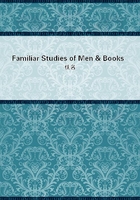
第76章
We all, whether we write or speak, must somewhat drape ourselves when we address our fellows; at a given moment we apprehend our character and acts by some particular side; we are merry with one, grave with another, as befits the nature and demands of the relation. Pepys's letter to Evelyn would have little in common with that other one to Mrs. Knipp which he signed by the pseudonym of DAPPER DICKY; yet each would be suitable to the character of his correspondent. There is no untruth in this, for man, being a Protean animal, swiftly shares and changes with his company and surroundings; and these changes are the better part of his education in the world. To strike a posture once for all, and to march through life like a drum-major, is to be highly disagreeable to others and a fool for oneself into the bargain. To Evelyn and to Knipp we understand the double facing; but to whom was he posing in the Diary, and what, in the name of astonishment, was the nature of the pose? Had he suppressed all mention of the book, or had he bought it, gloried in the act, and cheerfully recorded his glorification, in either case we should have made him out. But no; he is full of precautions to conceal the "disgrace" of the purchase, and yet speeds to chronicle the whole affair in pen and ink. It is a sort of anomaly in human action, which we can exactly parallel from another part of the Diary.
Mrs. Pepys had written a paper of her too just complaints against her husband, and written it in plain and very pungent English. Pepys, in an agony lest the world should come to see it, brutally seizes and destroys the tell-tale document; and then - you disbelieve your eyes - down goes the whole story with unsparing truth and in the cruellest detail. It seems he has no design but to appear respectable, and here he keeps a private book to prove he was not. You are at first faintly reminded of some of the vagaries of the morbid religious diarist; but at a moment's thought the resemblance disappears. The design of Pepys is not at all to edify; it is not from repentance that he chronicles his peccadilloes, for he tells us when he does repent, and, to be just to him, there often follows some improvement. Again, the sins of the religious diarist are of a very formal pattern, and are told with an elaborate whine. But in Pepys you come upon good, substantive misdemeanours; beams in his eye of which he alone remains unconscious; healthy outbreaks of the animal nature, and laughable subterfuges to himself that always command belief and often engage the sympathies.
Pepys was a young man for his age, came slowly to himself in the world, sowed his wild oats late, took late to industry, and preserved till nearly forty the headlong gusto of a boy.
So, to come rightly at the spirit in which the Diary was written, we must recall a class of sentiments which with most of us are over and done before the age of twelve. In our tender years we still preserve a freshness of surprise at our prolonged existence; events make an impression out of all proportion to their consequence; we are unspeakably touched by our own past adventures, and look forward to our future personality with sentimental interest. It was something of this, I think, that clung to Pepys. Although not sentimental in the abstract, he was sweetly sentimental about himself.
His own past clung about his heart, an evergreen. He was the slave of an association. He could not pass by Islington, where his father used to carry him to cakes and ale, but he must light at the "King's Head" and eat and drink "for remembrance of the old house sake." He counted it good fortune to lie a night at Epsom to renew his old walks, "where Mrs. Hely and I did use to walk and talk, with whom I had the first sentiments of love and pleasure in a woman's company, discourse and taking her by the hand, she being a pretty woman." He goes about weighing up the ASSURANCE, which lay near Woolwich underwater, and cries in a parenthesis, "Poor ship, that I have been twice merry in, in Captain Holland's time;" and after revisiting the NASEBY, now changed into the CHARLES, he confesses "it was a great pleasure to myself to see the ship that I began my good fortune in." The stone that he was cut for he preserved in a case; and to the Turners he kept alive such gratitude for their assistance that for years, and after he had begun to mount himself into higher zones, he continued to have that family to dinner on the anniversary of the operation. Not Hazlitt nor Rousseau had a more romantic passion for their past, although at times they might express it more romantically; and if Pepys shared with them this childish fondness, did not Rousseau, who left behind him the CONFESSIONS, or Hazlitt, who wrote the LIBER AMORIS, and loaded his essays with loving personal detail, share with Pepys in his unwearied egotism? For the two things go hand in hand; or, to be more exact, it is the first that makes the second either possible or pleasing.